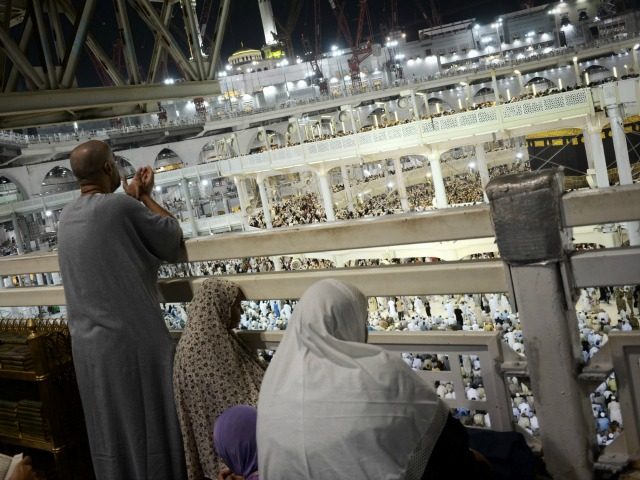Deteriorating diplomatic relations between Saudi Arabia and Iran will cause Iranian Muslims to miss the annual hajj pilgrimage to Mecca this September.
The two Muslim nations — one Sunni and the other Shiite — broke off diplomatic relations in January, then failed to reach a deal allowing Iranian worshipers to travel to the holy site in Saudi Arabia this year.
Every year, the hajj pilgrimage attracts millions of Muslims from around the world to Mecca. Making the trip at least once in their lifetime is an obligation of every Muslim who can afford it.
Iran’s Culture Minister Ali Jannati tells Iran’s official news agency IRNA that Saudia Arabia was to blame. “The arrangements have not been put together and it’s now too late,” said Jannati, whose ministry oversees arrangements for Iranian pilgrims. “The sabotage is coming from the Saudi side.”
The Saudis meanwhile, blame Iran for the impasse.
“Iran is the only country that refused to sign the agreement on the hajj. It insisted on a number of unacceptable demands,” Saudi Minister of Hajj and Umra Mohammed Bintin told state television station Ekhbariy.
Saudi Arabia regularly secures advance agreements with Muslim nations covering visa, travel and other arrangements for pilgrims traveling to Mecca. According to Reuters, Iran had insisted Saudi Arabia issue travel visas within Iran, rather than at the destination, and other security arrangements.
Last year, 2,000 pilgrims were crushed to death during the hajj, included more than 400 Iranians. The Iranian government expressed outrage over the incident and questioned whether Saudi Arabia could safely handle the pilgrimage.
The disagreement between the two countries in this case is only partly about arrangements for the annual hajj pilgrimage. Saudi Arabia is a Sunni Muslim state, while Iran is the dominant state of Shia Muslims. This sectarian divide within Islam have put the two regional powers on the opposite sides of many mini-conflicts within the region.
Saudi Arabia is the primary sponsor of groups trying to oust Syrian President Bashar Assad, while Iran has provided military and financial support to the Syrian regime. The two nations are also engaged in a proxy war in Yemen, at the southern tip of the Arabian peninsula. Iran has backed Shia-rebels in the country against Yemen’s Sunni government, which is backed by the Saudis.
There is also financial tension between the two nations. After reaching an agreement over its nuclear program with the US and Europe, Iran is set to reenter the world market for oil. Prior to international sanctions, Iran was producing 3-4 million barrels of oil a day. That number was cut by two-thirds as a result of the sanctions.
The lifting of sanctions against Iran will bring a lot more crude oil into a market that is already suffering from oversupply. Saudi Arabia has been eager to reclaim its leadership of OPEC ahead of Iran’s reemergence as a petro-power.
Last month, OPEC negotiations over petroleum supply fell apart over Saudi concerns about Iran’s production plans.
Each of these issues, among others, likely contributed to the breakdown in arrangements between the two countries for this year’s hajj pilgramage. While individual Muslims may not be aware of all the geopolitical forces engulfing the region, they are acutely aware of their religious obligation to make the pilgrimage to Mecca.

COMMENTS
Please let us know if you're having issues with commenting.